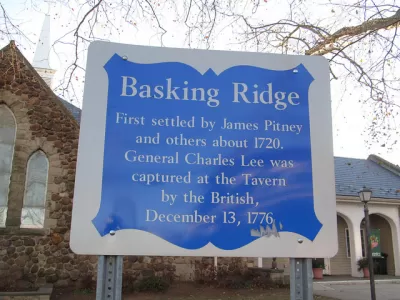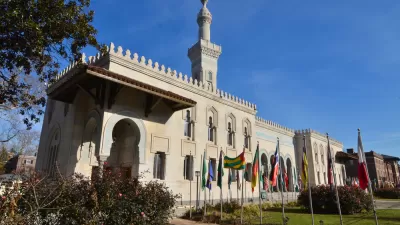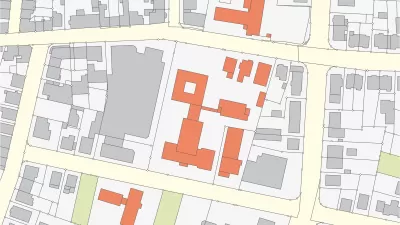A proposed mosque in Bernards Township will move forward, after the DOJ sued the town for using zoning ordinances to undermine Muslims' religious freedom.

"After five years, 39 public hearings, and two lawsuits, the Islamic Society of Basking Ridge in New Jersey will finally be able to build a new mosque," reports Emma Green in The Atlantic.
When it proposed the mosque in 2012, the Islamic Society became the target of explicitly Islamophobic treatment from community members and was met with prevarication from officials. The plan was finally rejected, ostensibly on the basis of parking.
The group sued the township—and so did the Department of Justice, arguing under the Religious Land Use and Institutionalized Persons Act, which Green explains "prohibits local communities from using vague ordinances and bureaucratic procedures to discriminate against religious groups." Now, though the township denies any wrongdoing, it has agreed to settle both cases, and the proposed mosque will move forward.
This case was a particularly nasty and controversial example of a local board discriminating against a religious group that wanted a place to worship. But while the Bernards Township case is distinctive, it’s in no way unique. Religious discrimination in the U.S. often happens in the most quotidian settings, including debates over zoning ordinances.
Over the last decade, opposition to new mosques swelled throughout the United States, and the DOJ has intervened with local planning boards multiple times. In March, Bayonne, NJ—just 30 miles from Bernards—rejected a proposed mosque and community center citing zoning concerns.
FULL STORY: A New Jersey Mosque Wins in a Religious-Discrimination Lawsuit—Over Parking Lots

Maui's Vacation Rental Debate Turns Ugly
Verbal attacks, misinformation campaigns and fistfights plague a high-stakes debate to convert thousands of vacation rentals into long-term housing.

Planetizen Federal Action Tracker
A weekly monitor of how Trump’s orders and actions are impacting planners and planning in America.

San Francisco Suspends Traffic Calming Amidst Record Deaths
Citing “a challenging fiscal landscape,” the city will cease the program on the heels of 42 traffic deaths, including 24 pedestrians.

Defunct Pittsburgh Power Plant to Become Residential Tower
A decommissioned steam heat plant will be redeveloped into almost 100 affordable housing units.

Trump Prompts Restructuring of Transportation Research Board in “Unprecedented Overreach”
The TRB has eliminated more than half of its committees including those focused on climate, equity, and cities.

Amtrak Rolls Out New Orleans to Alabama “Mardi Gras” Train
The new service will operate morning and evening departures between Mobile and New Orleans.
Urban Design for Planners 1: Software Tools
This six-course series explores essential urban design concepts using open source software and equips planners with the tools they need to participate fully in the urban design process.
Planning for Universal Design
Learn the tools for implementing Universal Design in planning regulations.
Heyer Gruel & Associates PA
JM Goldson LLC
Custer County Colorado
City of Camden Redevelopment Agency
City of Astoria
Transportation Research & Education Center (TREC) at Portland State University
Jefferson Parish Government
Camden Redevelopment Agency
City of Claremont




























